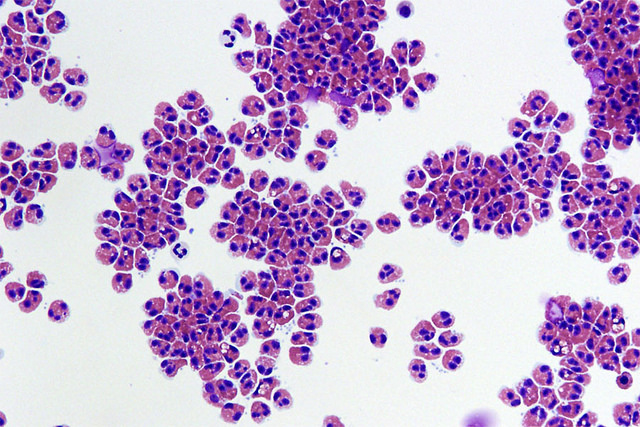Coronary stenting with use of heparin, aspirin, and ticlopidine for thromboprophylaxis is performed in more than 500 000 patients per year worldwide. We did a randomised controlled trial to assess the role of platelet glycoprotein-IIb/IIIa blockade for use in elective stenting.
Coronary stenting with use of heparin, aspirin, and ticlopidine for thromboprophylaxis is performed in more than 500 000 patients per year worldwide. We did a randomised controlled trial to assess the role of platelet glycoprotein-IIb/IIIa blockade for use in elective stenting.At 63 hospitals in the USA and Canada, 2 399 patients with ischaemic heart disease and suitable coronary-artery lesions were randomly assigned stenting plus placebo (n= 809), stenting plus abciximab, a IIb/IIIa inhibitor (n= 794), or balloon angioplasty plus abciximab (n= 796). The primary endpoint was a combination of death, myocardial infarction, or need for urgent revascularisation in the first 30 days. All patients received heparin, aspirin, and standard pharmacological therapy.The primary endpoint occurred in 87 (10.8%) of 809 patients in the stent plus placebo group, 42 (5.3%) of 794 in the stent plus abciximab group (hazard ratio 0.48 [95% CI 0.33-0.69] p<0.001), and 55 (6.9%) of 796 in the balloon plus abciximab group (0.63 [0.45-0.88] p=0.007). The main outcomes that occurred less with abciximab were death and large myocardial infarction--7.8% in the placebo group, 3.0% for stent plus abciximab (p<0.001), and 4.7% for balloon angioplasty plus abciximab (p=0.01). Major bleeding complications occurred in 2.2% of patients assigned stent plus placebo, 1.5% assigned stent plus abciximab, and 1.4% assigned balloon angioplasty plus abciximab (p=0.38).Platelet glycoprotein-IIb/IIIa blockade with abciximab substantially improves the safety of coronary-stenting procedures. Balloon angioplasty with abciximab is safer than stenting without abciximab.(Source: European Society of Cardiology: Acute Coronary Syndromes Trials)
All content and media on the HealthEngine Blog is created and published online for informational purposes only. It is not intended to be a substitute for professional medical advice and should not be relied on as health or personal advice. Always seek the guidance of your doctor or other qualified health professional with any questions you may have regarding your health or a medical condition. Never disregard the advice of a medical professional, or delay in seeking it because of something you have read on this Website. If you think you may have a medical emergency, call your doctor, go to the nearest hospital emergency department, or call the emergency services immediately.







